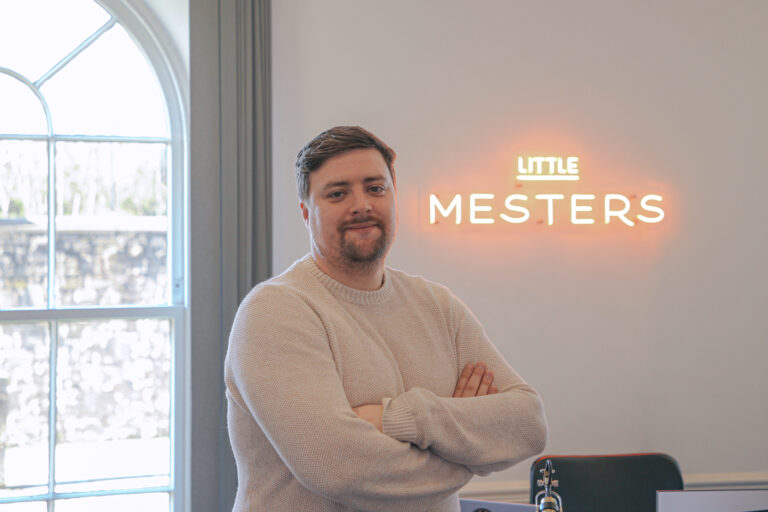Social media strategies have become obsessed with numbers. In reality, that number is meaningless unless an organisation is talking to the right people, writes Tom Scott, founder of Sheffield-based specialist social media agency Little Mesters.
Building authentic communities, where people feel they not only belong online but are empowered to contribute and engage, is often seen as time intensive nowadays. I realise that this is a broad and sweeping statement but I’m often hearing that the time to build up and continually engage with a targeted audience isn’t a big enough slice of social media strategies from the outset.
This is no criticism in a world where lots of agencies and in-house teams are absolutely trying to do all possible to keep up with the ever-increasing demands and changing landscape of social media. But I feel that we perhaps sometimes need to go back to the fundamentals of what social media was first intended to provide.
Being more ‘human’
Social Community Management is one of those fundamentals which allows businesses and organisations to be far more ‘human’. It’s the time when a brand can be a facilitator while giving those interested – whether that’s an internal or external audience – real ownership. The real ‘human’ element comes from the brand genuinely listening and responding via social media. It’s massively helpful to have ambassadors who are organically sharing content and advocating for a brand, as well as asking questions because they are interested. It’s almost a ‘money can’t buy’ engagement tool but of course it can take months and even years to get there.
So it does require patience, skills, knowledge and graft. We’ve all seen countless influencer campaigns and they have a rightful place, especially with an increasing number of people now saying that they trust influencer marketing more than advertising.
But influencer strategies are by no means the answer in isolation and in themselves are resource and budget heavy.
I believe that any social media campaign implemented by a business or organisation should have a dedicated community manager (or managers if appropriate) who knows the audience inside out. They can be the gatekeeper and the person who sets the objectives, constantly evaluating and adjusting the outreach and engagement strategy to best effect. This is invaluable to give consistency and credibility to the community that has been built or is being formed.
Investing in people and the right tools
Utilising a social listening tool helps too, as does having a social media analyst where possible. To really be ahead of things, having access to the right social management tools, built around the needs of a business, will stand any organisation in good stead. Yes, it takes time. But those who do it well reap the rewards and find that the ROI is absolutely worth it.
For example, I like what Depop has been doing over the last few years with its social community. They have a big focus on posting user generated content and engaging with their customers. Giving them a constant stream of authentic, fresh content and a highly engaged user base.
In our own work, we have supported Sheffield FC to establish and build a whole new community online. Engagement rates have gone through the roof but they’ve also seen the conversion rates rise considerably in their sales.
Keeping this skill alive requires leaders and senior team members, as well as education institutions, to showcase best practice in Social Community Management. People need to have the skills and ability to thoroughly research communities in line with an organisation’s objectives.
It’s that old adage of quality over quantity. We’ve become obsessed with numbers attached to social media accounts in recent years. In reality, that number is meaningless unless an organisation is talking to the right people. Community managers should be asking themselves what those followers need and want and what a company can offer in return.
Switching away from broadcast
Why do I think all of this is so important? Because deep links are essential for brand presence and these can only materialise by switching away from any ‘broadcast’ mode. What we’ve all seen play out over the various major news events in recent years is that brands who broadcast their own views without knowing their social media audience well can find themselves out of step.
Being called out on social media because of a statement that’s being made, even with the right intentions, is often due to a disengagement.
Broadcasting alone is shouting. And it’s no secret that people are more compelled to unfollow with this approach, just like they will remove themselves from newsletter lists for the same reasons. That said, when mistakes do happen, which is only human, then having strong engagement already is a powerful asset. It’s important to box clever and provide curious, informative, unique content where and when relevant – aligned to values and strategies throughout.
Unfortunately there’s a misconception sometimes still at play around social media being a relatively straight-forward tool within the marketing mix. The truth is that absolutely everything a business or organisation does via social media has to be carefully considered and planned, with a real focus on results, to maximise impact. The instant nature of social media can mean it’s often a rollercoaster ride but threading through this a strategy with a trusted pair of hands (or more) means that the bigger picture prevails.
My vision for the future of Social Community Management is for this to be held in high regard, front and centre of every strategy, once again. And that those specialists who love to provide this as part of their daily work are empowered to invest the right amount of time and skills.











